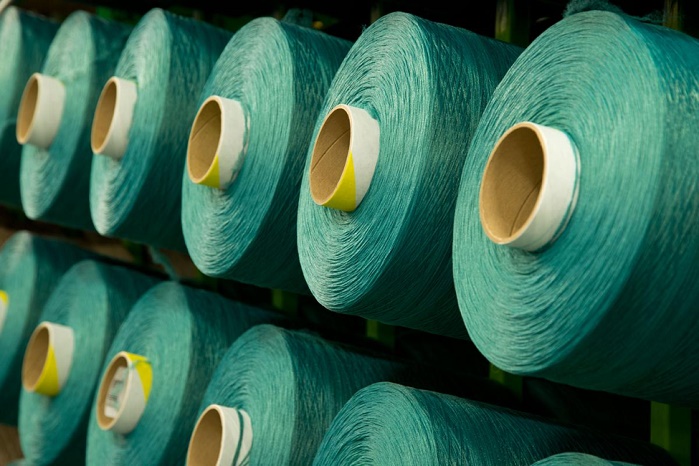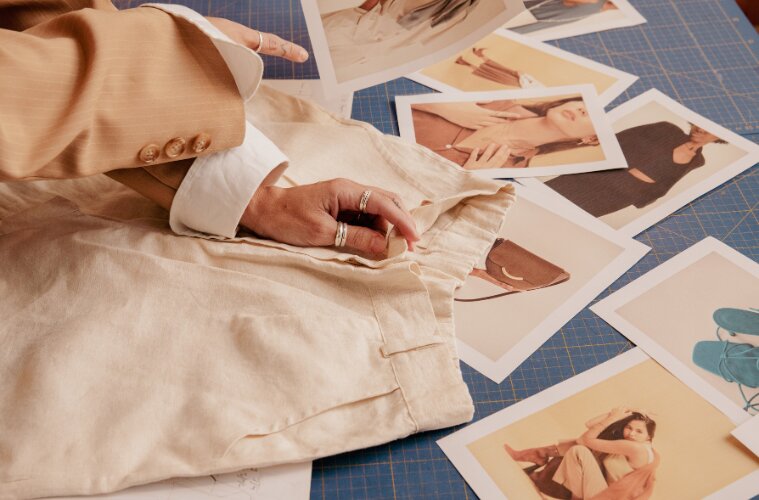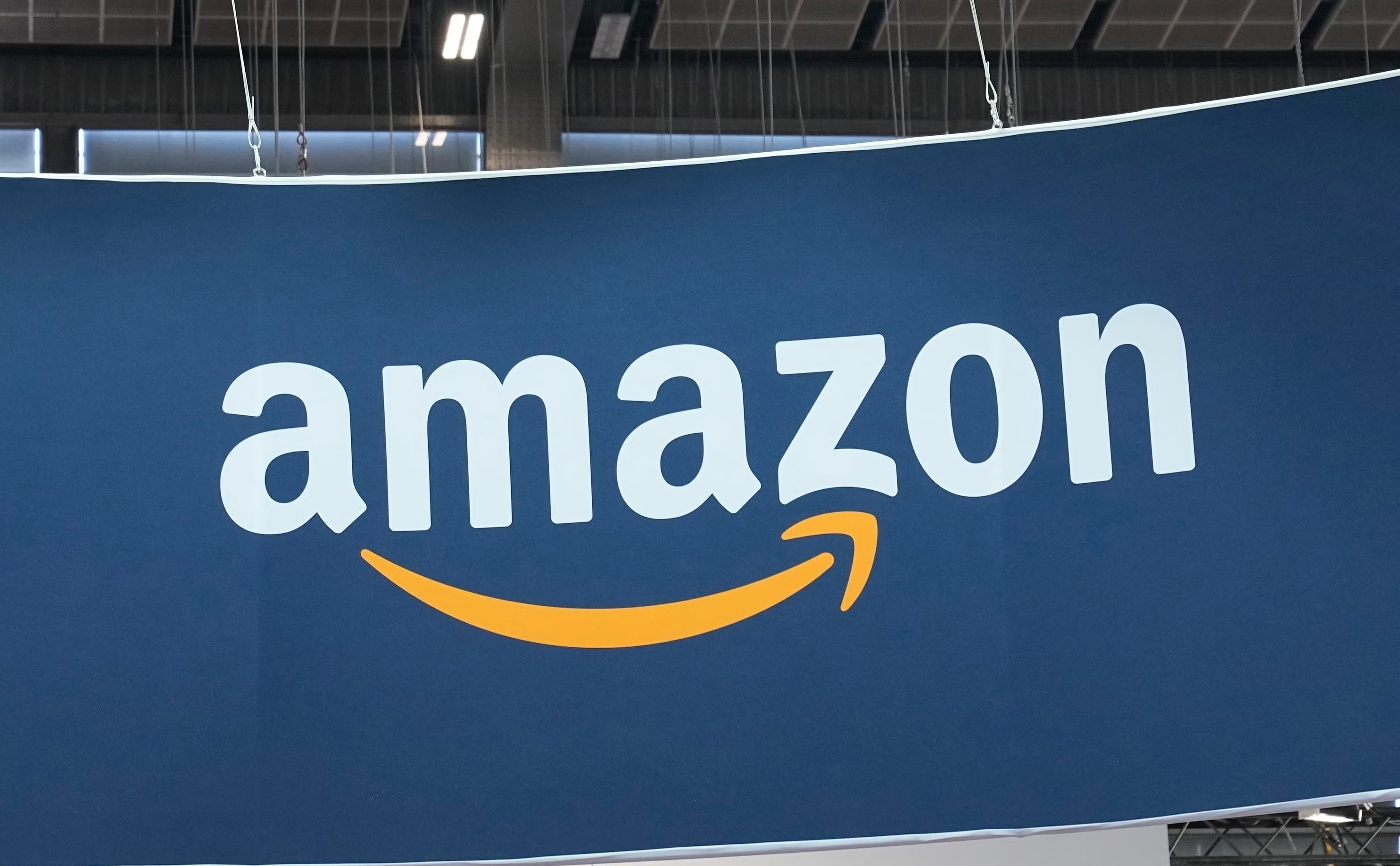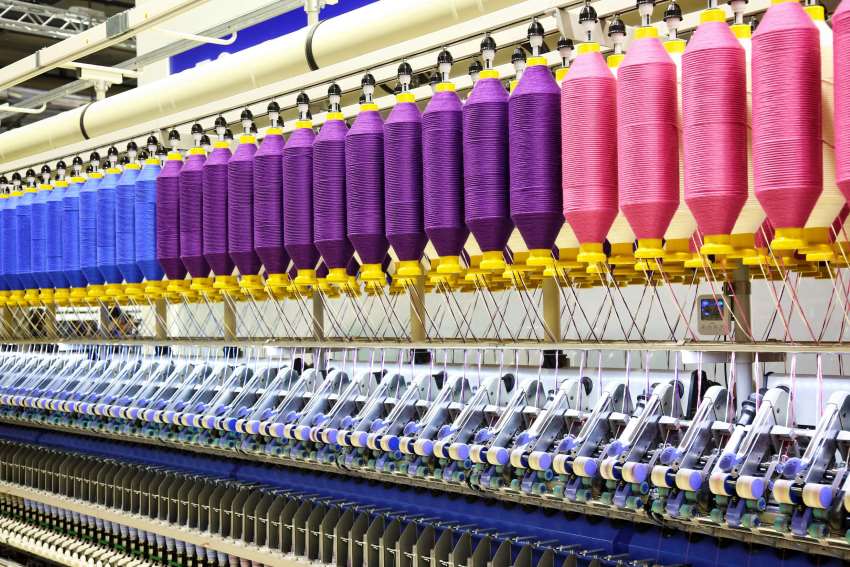FW
US retail apparel prices fell a seasonally adjusted 0.9 per cent in June after being unchanged in May, but were up 0.6 per cent from a year earlier. Women’s wear prices fell 1.2 per cent last month, led by declines of 3.5 per cent in dresses and 3.4 per cent in the underwear, nightwear, sportswear and accessories category, balanced somewhat by price increases of 0.5 per cent in outerwear and 0.1 per cent in suits and separates.
Men’s wear prices inched up 0.1 per cent in the month, with gains of 0.5 per cent in shirts and sweaters, 0.3 per cent in furnishings and 0.2 per cent in pants and shorts, while prices for suits, sport coats and outerwear were off 0.3 per cent.
The falloff runs counter to increases in raw materials prices, which have been on the rise, and is likely indicative of retail trends, including the strength of off-price merchants, a shift to summer goods from spring merchandise, and a softness in overall pricing power in the highly competitive sector.
Raw material and apparel prices are expected to spike in the coming months due to the import tariffs already imposed or set to be imposed this fall on textiles and some clothing from China, the largest supplier of apparel to the US.
UBM Fashion has updated ShopTheFloor, its digital tradeshow and social marketplace. ShopTheFloor’s new and improved B2B platform includes a refreshed look and feel, updated, easy-to-use experience, and direct access to the largest, qualified network of new and notable fashion brands and retailers. This launch includes a redesign of the shopping and order taking process, as well as a new mobile-friendly responsive design to accommodate UBM’s on-the-go retail buyers. ShopTheFloor Premium, which was also launched, includes a set of features like SalesMatch and Lead Analytics to better help brands further grow and drive new business.
UBM Fashion is the world’s leading organizer of trade shows for the fashion industry. It has also given ShopTheFloor a new visual brand identity and tagline. UBM wanted to build a world for ShopTheFloor that was dynamic, compelling and evoked the idea of constant movement and connectivity. It was also important for UBM to tell the story of ShopTheFloor’s broad range of fashion categories and product classifications. The new visual identity for ShopTheFloor brings all of these pieces together under a single, cohesive style that feels modern and cool.
For brands the new ShopTheFloor offers benefits like enhanced brand profile and product showroom management and order capture; prime visibility and exposure opportunities to over 25,000 retail buyers.
Consinee, founded in 1999, is China's largest spinner and exporter of cashmere yarn. Out of every seven cashmere items sold in the world, one is made from Consinee yarn. Casual and occasion wear is knitted from Consinee's proprietary cashmere yarn series creations.
Consinee Group has built an advanced green manufacturing industry chain base, integrating dyeing, spinning of woolen, worsted, semi-worsted and fancy yarns, as well as high quality fabrics, import-export trade, digital logistics, and an intelligent manufacturing and information platform.
This is the only large-scale spinning company in China that completely uses new and imported automatic production lines. Today, Consinee produces and sells 10,000 tons of high quality yarns and fabrics annually, mainly using natural fibers like cashmere, among which 100 per cent cashmere yarn accounts for more than 2,000 tons, occupying ten per cent to 15 per cent of the world’s total cashmere output.
Consinee has the very first fully intelligent digital unmanned workshop in the Chinese textile industry. It has realized integration of digital production control and technical process management systems, which enables all aspects of R&D, production, quality control, warehousing and logistics to be transparent, efficient, energy-saving and fully traceable.
The group’s mission is to truly satisfy international fashion brands and the luxury goods market’s pursuit of high-end textile raw materials.
Orissa has launched an investment program called Go-Swift. Within eight months, some 300 investment proposals have been submitted. The proposals belong to a variety of sectors ranging from food processing, seafood, aluminium downstream, apparel, cement, tourism and others.
Go-Swift expects a cumulative investment commitment of some Rs 18,208 crores with an employment potential of over 29,000 people. This is first-of-its-kind initiative by any state government in the country. Due to the significant ease of application and the expeditious approval process, there has been a considerable increase in the number of investors wanting to set up their business in the state.
Kitex Garments for instance will set up an apparel manufacturing unit in Orissa. The project will create employment opportunities for over 5000 people, mostly women. Kitex is an exporter of cotton garments, especially infant wear, to the US and Europe. The company has two segments – garments and fabrics. In fiscal ’16-’17 the garment segment contributed 84 per cent to sales and fabrics 16 per cent.
Kitex, based in Cochin, is in the process of upgrading its current facilities so as to expand capacity. It is a vertical set-up with knitting and processing of fabrics while finished garments are done in-house. The facility covers an area of 1,80,768 sq. ft.
India is an important market for Karl Mayer. Besides offering high-speed machines, Karl Mayer also offers Indian customers expertise in warp knitting and new ideas for textile products. The company presented its Terry.Eco concept for warp knitting, which is aimed at the ecological and economical production of terry goods. Weavers have understood the advantages of warp knitting for producing terry goods and are now getting to grips with the possibilities.
Karl Mayer’s high-speed tricot machines can be used for designing a wide variety of apparel fabrics and for producing terry goods. Many warp knitting companies in India concentrate on producing embroidery grounds and simple fabrics for saris. However, the HKS 4-M EL can do much more than that. Various transparent fabrics featuring different mesh patterns in the ground and superimposed geometric designs can be produced by the HKS model.
Possible ground constructions include classic tricot types such as honeycomb, diamond and atlas mesh construction. Atlas and filet tulle grounds featuring integrated diamond patterns with the look of raschel-knitted fabrics can also be worked.
The HKS 3-M is already well established in India. It can produce a new collection of designs. The lightweight, voile-like fabrics are particularly eye-catching, thanks to their fine, transparent ground and dense, striped pattern blocks.
For the first quarter of 2018, Itema’s turnover grew 15 per cent. The group has a strong international presence with 92 per cent of the total resulting from foreign markets. The Italian market achieved good results as well. Itema’s weaving machines are the preferred choice of weavers in the main textile markets such as China, Turkey and India.
In 2017, the group launched a diversification strategy, Project Galaxy that led to its acquisition of a majority interest in Lamiflex, a leading supplier of technical composite products for the textile, aeronautical and medical industries. Itema will face the rest of the year relying on the momentum and confidence ensured by a well-filled order book for the upcoming months.
The group invests three per cent of its turnover every year in research and innovation. Tireless and steady commitment to continuous innovation has led Itema to develop breakthrough and smart weaving solutions. Itema’s new R95002 denim rapier weaving machine, a second generation weaving machine, has been specifically designed and developed to excel in denim weaving and features numerous advancements.
The I Saver is a breakthrough innovation which can completely eliminate the waste selvedge on the fabric left side leading to substantial savings for denim weavers.
India’s production volumes of textiles are significantly lower than in May 2016. Textiles manufacturing declined 0.5 per cent and apparels by 12.8 per cent. This decline was over and above the 3.2 and 6 per cent dip in May 2017, when total production declined 4.9 per cent. This only shows that the decline has accelerated instead of rebounding. In May 2018, the two components together declined 8.9 per cent year on year.
A recovery can only happen if investment climate improves and income grows. Overall employment generation needs to be accelerated quickly to revive the textile industry. In fact, India’s textile and clothing sector is witnessing signs of recovery and expected to perform better in export and domestic markets this year.
The sector saw a major hit due to demonetisation, implementation of GST, rupee appreciation, and high domestic cotton prices. India is now poised to overtake China in the textile sector by capitalizing on factors such as cheaper labor and modernization. With quality and skilled labor and machinery, India can easily overcome Chinese competition in the textile industry as labor costs in China are very high compared to India’s.
India aims to double the annual revenue of the textile industry in the country by 2025.
Indian denim mills are exploring Vietnam. KG Fabriks from Coimbatore has been putting efforts into this market for the last four years and has succeeded in getting some volume business and new customers. As of now, the company is working with some eight or 10 clients and expecting 30 to 40 per cent growth in orders from Vietnam, the company as of now is managing its logistics well, as most of the demand it gets is for regular products.
KG Fabriks uses only three liters of water to produce one meter of denim fabric. Use of sulphur rather than reactives is another attraction of the company’s products.
Surat’s Anubha Industries has been pushing its offerings for the last three years and is now geared up for good business. The company is in the process of opening an office in Vietnam. Anubha is continuously meeting with new buying houses, brands, and jeans manufacturers in Vietnam and exchanging ideas in product requirement and offerings.
Aarvee Denims and Exports from Ahmedabad has been exploring this market with comparatively limited focus but is now geared up with full preparations. Vietnam, the world’s third largest apparel exporting country, is a growing opportunity for Indian denim mills.
Greenpeace has praised Inditex, Benetton and H&M for leading the industry towards a toxic-free future” in its third Detox Catwalk campaign to eliminate hazardous chemicals by 2020. The three apparel firms topped the online ranking of 19 fashion and sportswear companies, with Greenpeace stating that they were the only avant-garde companies that were on track to clean up their chains as promised by 2020, due to them all having “credible timelines, concrete actions and on-the-ground implementation” in place.
Greenpeace says the global partnership with WWF work with other brands within the Swedish Textile Water Initiative (STWI), which aims to improve industry standards on water and chemical management and energy use, are some examples of that.
The other 12 brands, including Adidas, Burberry, Levi’s, Primark and Puma, have found themselves in the middle evolution mode, as they all have made commitments to detox and Greenpeace can see that progress to implement plans has been made, however, they believe that they need to “evolve faster” to achieve the 2020 Detox goal.
With Greenpeace adding that each brand is not banning enough hazardous chemicals and rely on flawed chemical list from the industry group Zero Discharge of Hazardous Chemicals (ZDHC). This list is missing important substances like PFCs and solvents like Dimethylformamide (DMF).
American and European companies are setting up shop in Ethiopia. Until now, the majority of FDI was coming from China. Power supply and labor in Ethiopia is reliable and cheaper so it creates an attractive alternative to more commonly known manufacturing destinations. Industrial parks up and down the country are employing thousands of people. The country now has business stakes in all major sea ports in east Africa and the state-owned Ethiopian Airlines freights cargo to over 40 international destinations.
Velocity Apparelz from Dubai does textile production in Ethiopia. The factory can produce 26,300 pieces of jeans, 200 kg of knitted garments, a lakh pieces of poly-bag and 60,000 cartons a year. The workspace is automated, set up on conveyor systems, powered by wind and lit by LED bulbs with its own water treatment on-site. Other sustainable practices at the factory include waterless washing, sublimation fabric printing and laser-blast technology.
American Philip Van Heusen established a joint venture in Ethiopia in 2016 with Indian manufacturer Arvind. The PVH Arvind conglomerate will export eight million shirts annually. Over 80,000 Ethiopian people work in the textile sector and the plan is to make that two million by 2025.












